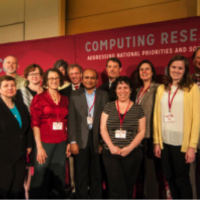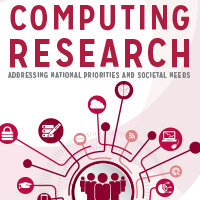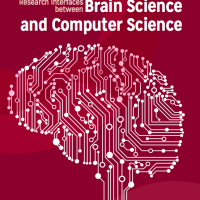
Can Research-Based Innovations in Computing Solve Compelling Societal Problems?
Computing has become a powerful tool for productivity and connectivity. It powers companies, it fuels scientific research, and it delivers entertainment and social engagement for billions of people.
Could research-based innovations in computing also become a catalyst for addressing compelling societal problems?
To explore this question, the Computing Community Consortium (CCC) organized a two-day symposium titled Computing Research: Addressing National Priorities and Societal Needs. This meeting brought together more than 130 in-person participants and more than 1,000 online viewers to raise the visibility of work that connects innovative computing research to major societal needs. The seven panels, two plenaries, and an early-career poster session, all of which are now available on the CCC website, presented numerous ideas that could reshape our world.













